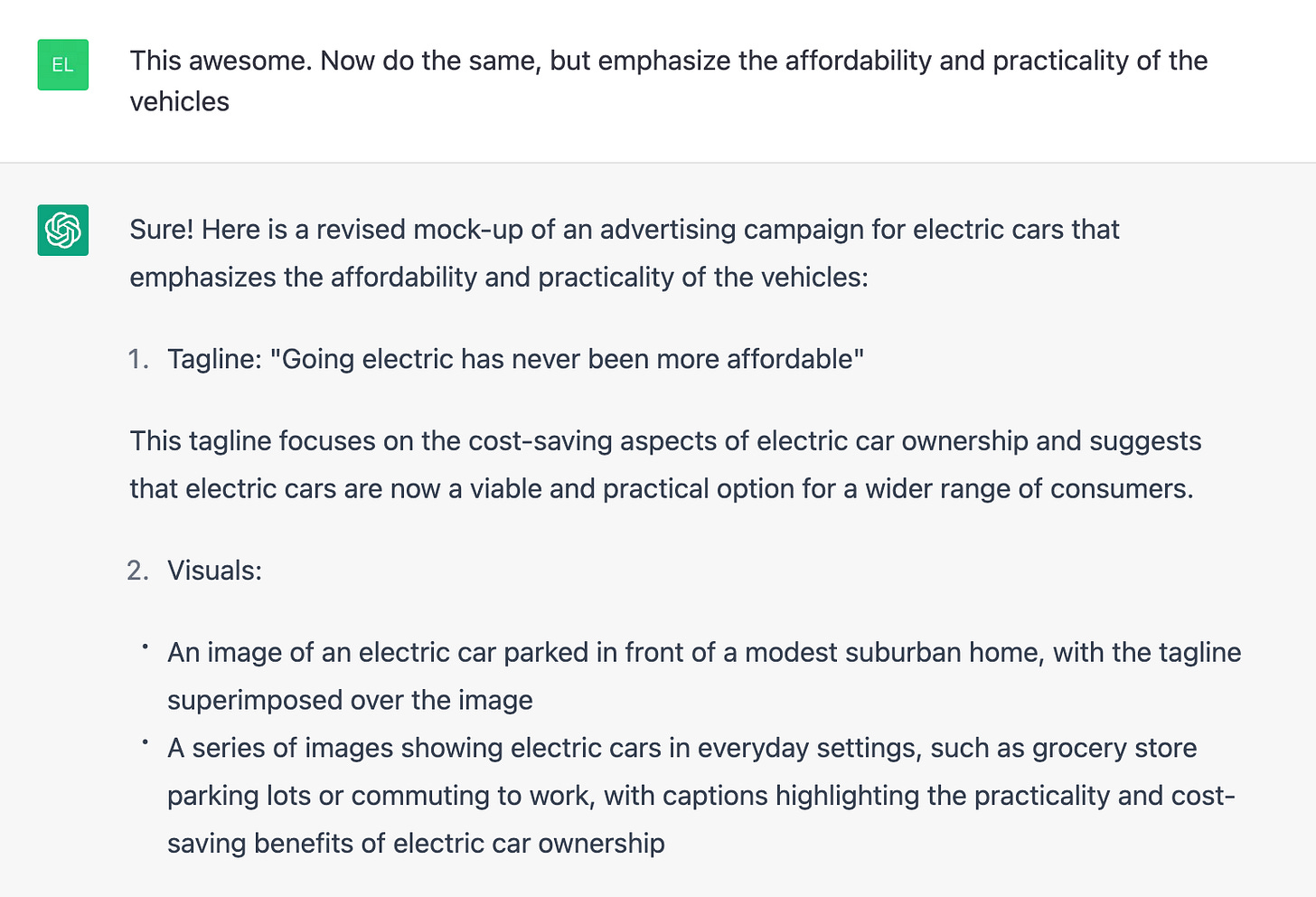With so many spectacular AI developments coming out this year, it is worth asking who benefits and who loses.
This is one of the very most important questions right now and I have a lot of thoughts. I may use short excerpts from Tyler as jumping off points throughout, so if you haven’t yet make sure to give his post a read first.
Personality Traits
The prior generation of information technology favored the introverts, whereas the new AI bots are more likely to favor the extroverts. You will need to be showing off all the time that you are more than “one of them.”
I agree with extraversion. As for the rest of the Big Five, I’m inclined to think that conscientiousness and agreeableness fall in importance while openness and neuroticism rise.
Conscientiousness (C)
In many (currently) high-status professions “attention to detail” is a key praiseworthy attribute. You need it to debug code, pinpoint the desired passage in a hundred page report, and submit authoritative outputs in which even small typos can be damaging. AIs will soon become much more reliable than humans at doing all of these tasks to the point that it will be considered irresponsible not to outsource them.
More generally, simple challenges of organization and life management will become much easier to compensate for.
Neuroticism (N)
Being more prone to negative emotion seems like a thoroughly bad thing, but in my experience the optimal amount of neuroticism in your life is far from zero. Being internally motivated becomes even more important in a world where AI makes it easy to reach traditional benchmarks, and worry, fear, guilt, anger, and disgust are indeed powerful motivators.
Agreeableness (A)
This is the category I’m least confident on. In some contexts, I think that agreeableness will be in higher demand as many currently acceptable expressions of care for others become devalued.
But on balance, I’m leaning against agreeableness. As AI raises the bar for what counts as exceptional originality, the ability to go out on a limb for ideas not yet supported by authoritative consensus will become even more important.
Openness (O)
High openness is the big winner in terms of the Big Five. Those willing to explore new and diverse ideas will be quicker to ask whether the old ways of doing something might be best discarded in favor of using AI, and in many cases such experiments will be rewarded.
The major downsides of openness—first and foremost the propensity to waste a lot of time trying new and ultimately fruitless ideas—will be largely mitigated as AI enables creative thinkers to very quickly try out lots of ideas with a minimum of wasted effort.
As AIs become increasingly good at providing research assistance, extremely creative thinkers will be able to keep many more projects running at once without needing to secure a lot of grant funding or manage a lab of variably dependable graduate students.
Other Characteristics
Stepping back from the Big Five, here are some brief notes on other qualities of interest.
Physical Attractiveness
Given how difficult it is for many people to accurately assess the quality of creative works, the more readily discernible features of a person are likely to become even more important. This is especially true if Tyler is right in predicting a massive decline in the number of overall winners within each domain.
Stamina
One of the points Tyler emphasizes in Talent is the importance of stamina. Insofar as AI increases the importance of tangible, in-person activities (which are hard to “fake”), physical stamina stands to rise in importance.
But when it comes to simply being able to produce a lot of intellectual output, I suspect that stamina may fall in status. Even the most prolific human creator is no match for the sheer amount of text and imagery AI can produce, which may make gaining notoriety via tonnage a more difficult strategy to pull off.
Writing Style
Just as a person’s accent tends to dominate our assessment of how well they speak English, many people evaluate writing quality primarily in terms of its style or “voice”. We tend to think of a great writer’s style as essentially inimitable.
But given enough training data, it seems plausible that this will change.
Unorthodox Politics
Chat GPT is a moderate liberal Democrat.
It will be easier to stand out if you are not a moderate liberal Democrat.
Being American
I expect many benefits to come to native-born Americans as a result of AI. But high-skilled foreign workers and students in the United States are likely to benefit even more for three reasons:
Many are already accustomed to using earlier versions of AI for various purposes (see Grammarly)
It will be easier for them to differ from western AI consensus in interesting ways
AI will make it much harder to tell that someone was not born in America based on linguistic or cultural hints
Personally I am intrigued to see what happens when highly intelligent workers born abroad can communicate more of their thoughts freely within institutions without fear of committing some faux pas. Given the high percentage of foreign-born workers at the highest levels of many professions—Silicon Valley, academia, and the Fed among other places—this has the potential to make a rather big impact on its own.
And Yet More Things to Consider
How will AI affect…
What else?
An Archetype
If pressed to identify a single archetype for what a winner is likely to look like in the wake of the new AI, I’m tempted to pick Joe Rogan.
Putting aside the fact that Joe is already successful, he is almost perfectly positioned to benefit from his…
Extraversion and openness
Ability to be either agreeable or disagreeable according to the context
Unorthodox politics (indeed it is often not clear he has a cohesive ideology)
Ability to perform live
Physicality
Interest in becoming smarter, and in particular understanding others’ perspectives
Whatever your opinion of Joe in other respects, consider trying to cultivate these attributes at the current margin.
Conclusion
Overall I’m quite optimistic about the promise of AI and its potential to stimulate creativity, but it could be that I’m wrong. If AI becomes too good at quickly imitating the creations of others, the incentive to create could start to evaporate.



But for now at least, I feel justified in predicting that infovores will be among the winners.

Thanks for reading! If you enjoyed this, I would appreciate if you would share this article with a friend or leave a comment.









AI is the ultimate infovore
Seems like Tyler disagrees that infovores will be among the winners:
"The returns to factual knowledge are falling,"
Also I was confused at this bit from Tyler:
"One striking feature of the new AI systems is that you have to sit down to use them. Think of ChatGPT, Stable Diffusion, and related services as individualized tutors, among their other functions. They can teach you mathematics, history, how to write better and much more. But none of this knowledge is imparted automatically. There is a relative gain for people who are good at sitting down in the chair and staying focused on something. Initiative will become more important as a quality behind success."
I'm not aware of many traditional learning vehicles that don't involve sitting down and paying attention--e.g., school, youtube. I'm not aware of ANY learning vehicles that automatically impart knowledge. Maybe I'm scarce on context here.